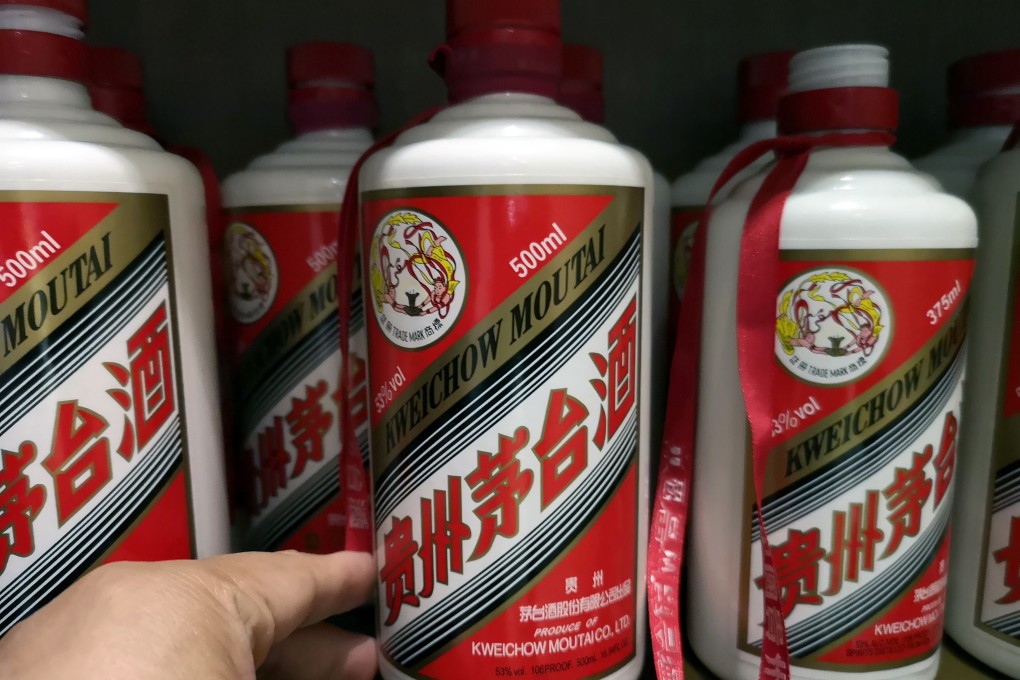Advertisement
No shelter for traders as speculation mounts that China’s regulatory storm is heading for baijiu distillers next
- Kweichow Moutai tumbles 4.4 per cent, while rival Wuliangye Yibin sinks 7.3 per cent
- Government notice saying the State Administration for Market Regulation had summoned baijiu distillers for a meeting on Friday stokes rumours
Reading Time:2 minutes
Why you can trust SCMP
0

China’s onshore stocks have been unable to provide safe haven from the country’s regulatory storm, after speculation about closer scrutiny of baijiu distillers sank index heavyweights on the mainland.
Kweichow Moutai, the stock with the biggest weighting on the Shanghai Composite Index, tumbled 4.4 per cent to 1,552.24 yuan on Friday, while rival Wuliangye Yibin, the most valuable stock on a gauge tracking the sector on the Shenzhen exchange, sank 7.3 per cent to 206.38 yuan. An index tracking distillers on the two bourses retreated 5.6 per cent for its lowest close in 10 months.
Stoking the tumult was a government notice widely circulating on the internet that said the State Administration for Market Regulation (SAMR), which has been in the news for investigating and fining China’s technology giants, had summoned baijiu distillers for a meeting on Friday. And while not much more was known, speculation was mounting that the regulator had zeroed in on a surge in the prices of some premium liquor brands, which was partially driven by hoarding.
The sell-off suggests that Beijing’s sweeping regulatory crackdown was expected to extend beyond the technology and private education industries. The swoon in liquor stocks dampened sentiment in the broader onshore market on Friday, with the Shanghai Composite dropping 1.1 per cent and the Shenzhen Composite Index falling 1.2 per cent.
Both gauges have, however, outperformed Hong Kong’s Hang Seng Index this year, which Citic Securities estimates had about a third of its market capitalisation directly exposed to Beijing’s regulatory clampdown. The Hang Seng Tech Index has slumped 30 per cent this year, with a wipeout of US$468 billion in market capitalisation.
Luxury consumption was likely to be the next target of China’s top policymakers, which meant premium baijiu brands and cars were risky investments, said Brian Bandsma, a portfolio manager at Zurich-based Vontobel that oversees US$147 billion in assets.
Advertisement